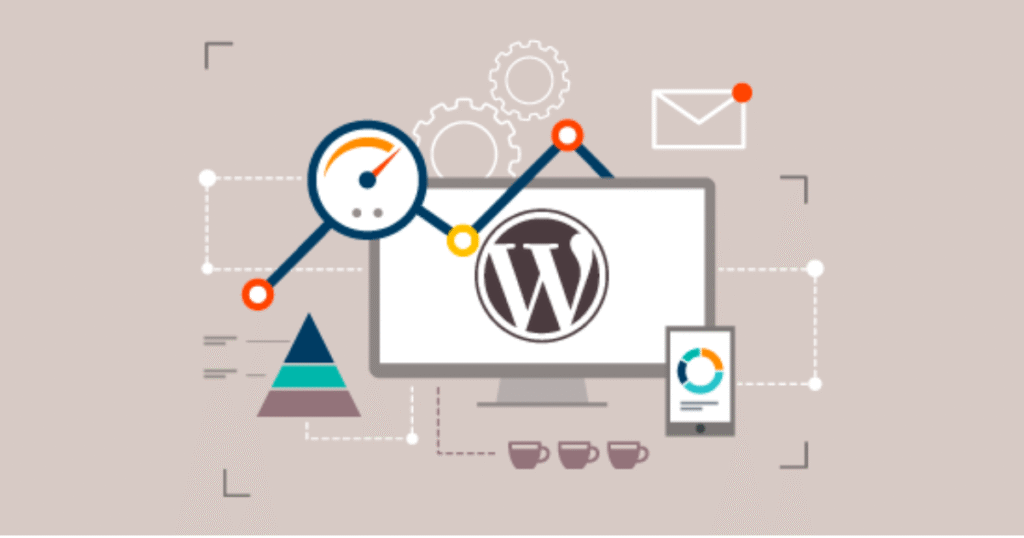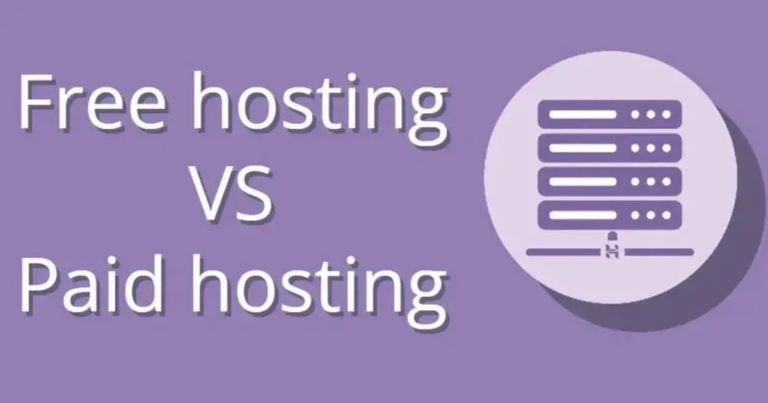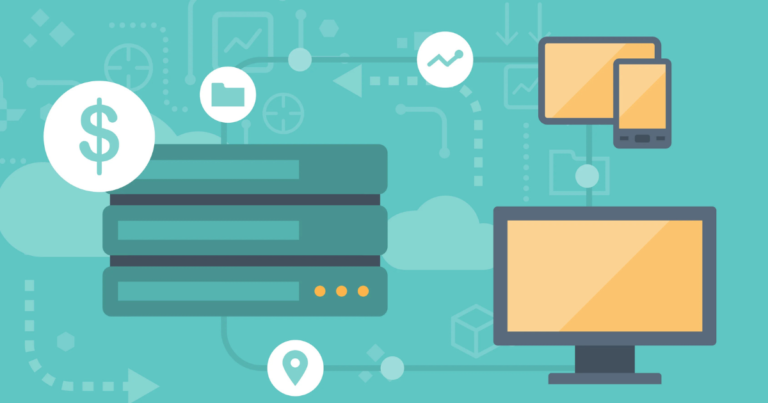Top 5 Advantages Of Paid Hosting For Your Business Website
In today’s digital-driven world, your business website is more than just an online presence—it’s a core part of your brand, customer service, and revenue stream. Choosing the right web hosting service is critical to your website’s performance, reliability, and growth potential. While free hosting might sound appealing for startups or entrepreneurs with tight budgets, it often comes with significant limitations that can hinder long-term success.
Paid hosting, on the other hand, offers a comprehensive set of benefits tailored for businesses. From faster site speeds to advanced security, investing in a paid hosting plan can enhance your website’s credibility, functionality, and user experience. In this article, we’ll explore the top five advantages of paid hosting for your business website.
What Is Paid Hosting?
Paid hosting is a web hosting service that charges a recurring fee in exchange for dedicated resources and enhanced features. It includes various hosting types such as shared, VPS (Virtual Private Server), dedicated, cloud, and managed hosting. Each plan is designed to support different levels of performance, scalability, and technical management based on your business needs.
Unlike free hosting services that rely on shared resources, limited features, and ad placements, paid hosting provides businesses with greater control, speed, and support. Let’s break down the top five benefits.
Advantage 1: Superior Website Performance and Speed

Faster Load Times
Website loading speed is crucial for user experience and SEO rankings. Studies show that a delay of just one second in page load time can reduce customer satisfaction by 16% and conversion rates by 7%. Paid hosting ensures faster loading speeds by offering powerful hardware, solid-state drives (SSD), content delivery networks (CDN), and optimized server configurations.
Reduced Latency and Server Response Time
Paid hosting providers typically use high-performance data centers strategically located around the world. This geographic distribution helps reduce latency and ensure faster server response times for global audiences.
Improved SEO Performance
Google and other search engines consider site speed as a ranking factor. A slow website can push your site lower in search engine results pages (SERPs). Paid hosting significantly improves your chances of ranking higher by maintaining consistent speed and performance.
Advantage 2: Reliable Uptime and Business Continuity
Guaranteed Uptime
Most paid hosting services offer a Service Level Agreement (SLA) that guarantees 99.9% or higher uptime. This means your website will remain accessible almost all the time, reducing the risk of losing potential leads or sales due to downtime.
Business Credibility and Trust
Frequent downtime can hurt your business’s reputation. Customers who find your site unavailable are less likely to return. A paid hosting provider minimizes this risk, ensuring your site is always ready to serve visitors.
Backup and Disaster Recovery
Many paid hosting plans include automated backups and disaster recovery features. If your website experiences data loss, you can quickly restore it to a previous version without major setbacks.
Advantage 3: Enhanced Security and Data Protection

Advanced Security Features
Security is a major concern for any business, especially if you handle sensitive customer data or run an eCommerce store. Paid hosting typically includes:
- Free SSL certificates
- Firewalls and malware scanning
- DDoS protection
- Secure FTP and file access
- Two-factor authentication
These features reduce the risk of hacks, malware, and data breaches.
Compliance and Legal Protection
Businesses need to comply with data protection regulations like GDPR, PCI DSS, and HIPAA. Paid hosting services offer compliance-friendly environments and security protocols to help your website meet these legal requirements.
Regular Security Updates
Paid hosting providers frequently update their server software, security patches, and applications to stay ahead of threats. These automatic updates ensure your website stays secure without manual intervention.
Advantage 4: Scalability and Customization
Flexible Hosting Plans
As your website grows in traffic and content, you’ll need more resources. Paid hosting services allow you to upgrade your hosting plan seamlessly—whether that means increasing bandwidth, storage, or switching to a more powerful server like VPS or cloud hosting.
Custom Configuration
Paid hosting gives you root access or administrative controls, enabling you to customize server settings, install custom applications, or configure databases according to your business needs. This flexibility is crucial for developers and tech-savvy business owners.
Support for Multiple Websites
If you’re managing more than one project or sub-brand, many paid hosting packages allow you to host multiple domains under a single account, complete with individual email addresses, FTP access, and isolated file structures.
Advantage 5: Professional Customer Support
24/7 Technical Support
A major advantage of paid hosting is access to round-the-clock technical support. Whether you’re facing server errors, configuration issues, or need help migrating your website, professional support is just a call or chat away.
Expert Troubleshooting
Paid hosting providers employ experienced technicians who can quickly identify and resolve technical problems. This ensures minimal downtime and helps you maintain a high-quality user experience.
Onboarding and Maintenance Assistance
From setting up your hosting environment to handling updates and maintenance, many paid hosting services offer onboarding support and managed services that take the stress out of server management—allowing you to focus on running your business.
How Paid Hosting Improves Brand Credibility
No Forced Ads

Unlike free hosting that often displays ads on your site to recover costs, paid hosting offers an ad-free experience. This ensures a clean, professional appearance for your brand.
Use of Custom Domain
Paid hosting allows you to use a branded domain (e.g., yourbusiness.com) rather than a subdomain (e.g., yourbusiness.freehost.com). This builds trust with customers and reinforces your brand identity.
Business Email Addresses
Most paid hosting services offer domain-based email addresses (e.g., info@yourbusiness.com), which look more professional and trustworthy than free Gmail or Yahoo addresses.
Use Cases: Who Should Choose Paid Hosting?
Paid hosting is the right choice for:
- Small and medium-sized businesses
- eCommerce websites
- Agencies and freelancers
- Bloggers planning to monetize their content
- Nonprofits and organizations handling member data
- SaaS and tech startups requiring secure infrastructure
If your website is more than a hobby project or personal blog , investing in paid hosting is a wise and future-proof decision.
Also Read ; Hosting Costs Explained: A Beginner’s Guide To Website Expenses
Conclusion
Your website is often the first point of contact with potential customers, investors, and partners. It needs to load quickly, stay secure, and remain accessible at all times. Paid hosting gives your business the tools and infrastructure needed to meet these expectations.
The advantages of paid hosting—superior speed, reliable uptime, enhanced security, scalability, and dedicated support—make it a smart investment for serious businesses. While free hosting might be suitable for casual use, it simply cannot meet the demands of a growing, customer-facing website.
By choosing paid hosting, you’re not just buying server space—you’re investing in your brand’s professionalism, trustworthiness, and long-term digital success.
FAQs
1.What’s the difference between shared, VPS, and dedicated hosting?
Shared hosting involves multiple websites sharing the same server resources, making it affordable but limited in performance. VPS hosting offers a virtualized environment with dedicated resources for better performance and control. Dedicated hosting provides an entire server exclusively for your website, ideal for high-traffic and resource-heavy applications.
2.How much does paid hosting typically cost?
Basic shared hosting plans start around $3–$10 per month. VPS hosting ranges from $20–$80, and dedicated hosting can cost $100 or more monthly, depending on the configuration and provider.
3.Can I migrate from free to paid hosting later?
Yes, most paid hosting providers offer migration services to help you transfer your website from a free or existing host. However, it’s best to start with paid hosting if you plan to grow your website professionally.
4.Do I need technical knowledge to use paid hosting?
Not necessarily. Many hosting providers offer managed hosting plans, where they handle all technical aspects like updates, backups, and security. Control panels like cPanel or Plesk also make it easy to manage hosting without deep technical expertise.
5.Is paid hosting suitable for eCommerce?
Absolutely. Paid hosting ensures better security, faster load times, and scalability—all critical for running a successful online store. It also supports SSL certificates, payment gateway integrations, and PCI compliance.







